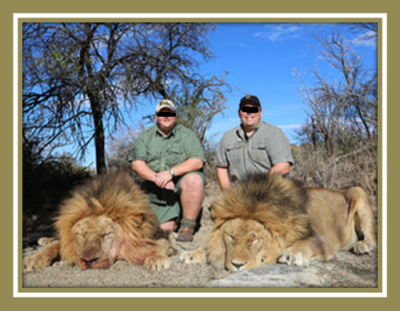News
Latest Lion Aid News
Does canned hunting save wild lion populations?
Sunday 24th May 2015
|
The simple answer is no, it in fact accelerates their decline in the wild. And here's some of the reasons why:
|
Posted by Chris Macsween at 12:49
Susanna Minacheili
25th May 2015 at 20:48
this question is insane..how can ever killing a species saves it?they should protect all lions ..wild and canned lion hunting is cold blood murder ...please let's ban this atrocity ...
Kallum Laing
13th July 2015 at 14:03
if you were paid £30,000 would you let someone shoot a lion because at the moment that's what is happening wealthy foreigner are going there and paying these villagers who have an annual income of £1200, people are paying them £30,000 to come and shoot a lion who is destroying the villages livestock. for the villagers its a win win and if you were in there situation i'm sure you'd take the money as well. @SussanaMinacheili
Chris Macsween
13th July 2015 at 15:57
Hi Kallum,
The villagers do NOT receive the benefit of hunting dollars when tourist hunters shoot lions. The monies paid go directly to the hunting operators and to Government coffers. For example, rural communities only receive $4 per square kilometre of land per year that they set aside for hunting concessions, in Tanzania. For communities, this is the least profitable use of their land. This is why poaching in hunting concessions is out of control.
Carmen Martin marero
15th February 2020 at 10:18
The issue is that trophy hunting allows cruel people to kill our wildlife, including Lions. Canned Lion industry is a twisted mind people industry for greed. We as humans have NO rights to abuse and kill animals. Cruelty is rife in many humans and that is what must be controlled legally. Hence, we must continue to fight legally to ban ALL trophy hunting and force such cruel humans into re-education for care for our wildlife.
Add a new comment
Existing user
New user sign up




